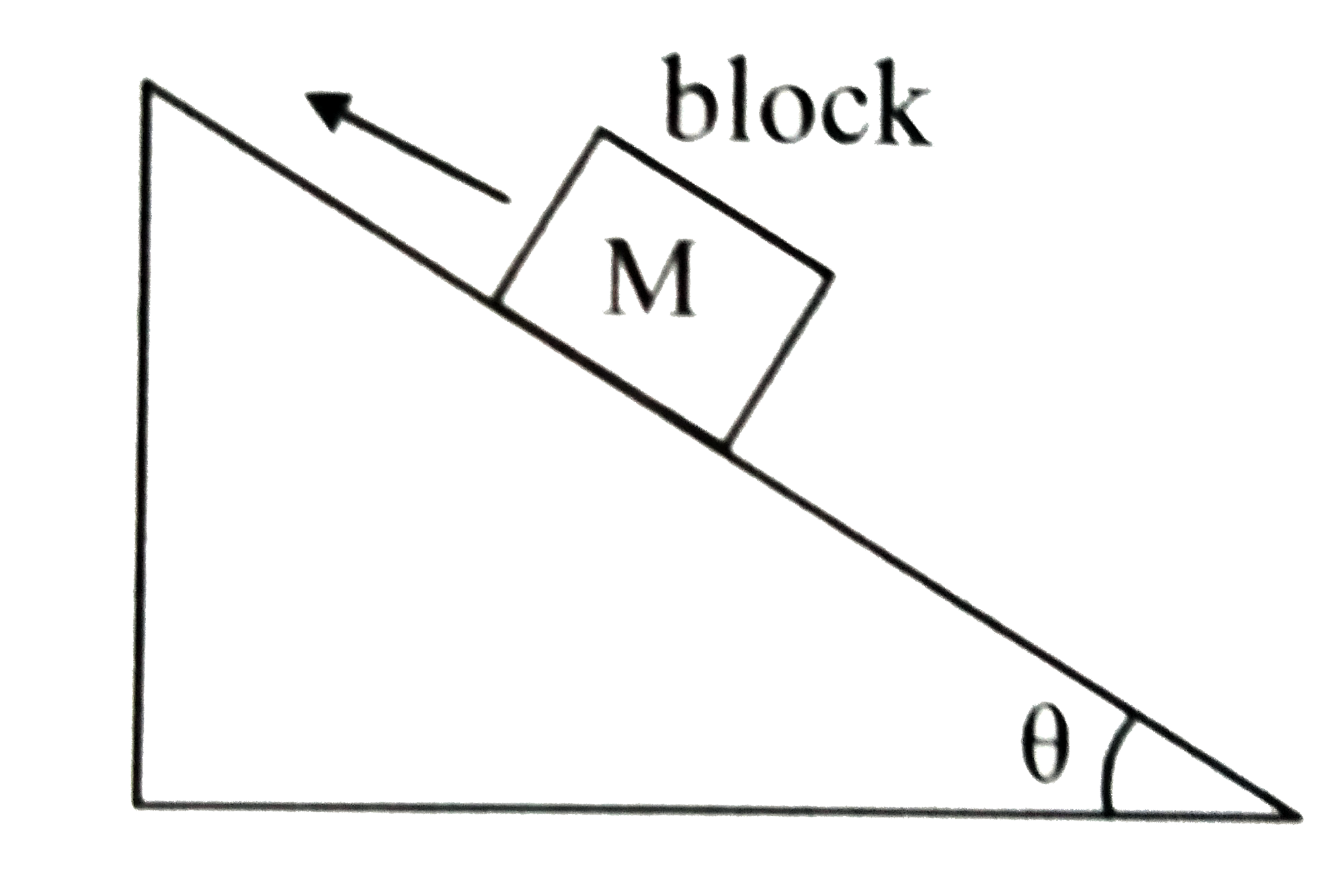A box of mass 4kg rests upon an inclined plane This inclination is gradually incresed till the box starts sliding down the plane. At this stage slope of the plane is 1 in 3 Find coefficient of friction between the box and the plane What force applied to the box parallel to the plane will just make the box move up the plane ?
Step by step video & image solution for A box of mass 4kg rests upon an inclined plane This inclination is gradually incresed till the box starts sliding down the plane. At this stage slope of the plane is 1 in 3 Find coefficient of friction between the box and the plane What force applied to the box parallel to the plane will just make the box move up the plane ? by Physics experts to help you in doubts & scoring excellent marks in Class 11 exams.
Topper's Solved these Questions
- BOOK - SL ARORACHAPTER - LAWS OF MOTION : FRICTIONEXERCISE - Problems17videos
LAWS OF MOTION : FRICTION
- BOOK - SL ARORACHAPTER - LAWS OF MOTION : FRICTIONEXERCISE - Self Practice95videos
LAWS OF MOTION : FRICTION
- BOOK - SL ARORACHAPTER - Laws of MotionEXERCISE - Exercise627videos
Laws of Motion
- BOOK - SL ARORACHAPTER - Mathematical toolsEXERCISE - Exercise20videos
Mathematical tools
Similar Questions
A mass of 4 kg rest on a horizontal plane . The plane is gradually inclined until an angle 0=15∘ with the horizontal and the mass just begins to slide . What is the coefficient of static friction between the block and the surface ?
 View Solution
View SolutionA block of mas M is resting on an inclined plane as shown in the figure. The inclination of the plane to the horizontal is gradually increased. It is found that when the angle of inclination is θ the block just begins to slide down the plane. What is the minimum force F applied parallel to the plane that would just make the block move up the plane ?
 View Solution
View Solution
Knowledge Check
- Question 1 - Select One
A block of mass 5 kg is placed on a rough inclined plane. The inclination of the plane is gradually increased till the block just begins to slide down. The inclination of the plane is than 3 in 5. The coefficient of friction between the block and the plane is (Take, g=10m/s2)
A35B34C45D23 - Question 2 - Select One
A block of mass 4kg rests on an an inclined plane. The inclination of the plane is gradually increased. It is found that when the inclination is 3 in 5 (sinθ=35) the block just begins to slide down the plane. The coefficient of friction between the block and the plane is.
A0.4B0.6C0.8D0.75 - Question 3 - Select One
A block of mass m is resting on an inclined plane. The inclination of the plane to the horizontal is gradually increased. It is found that when angle of inclination is θ, the block just begins to slide down the plane. What is the minimum force F applied parallel to the plane that would just make the block move up the plane?
A2mgsinθBmgsinθCmgcosθD2mgcosθ
A block of mass 4kg rests on a rough horizontal plane. The plane is gradually inclined until at an angle θ=60∘ , with the vertical, the mass just begins to side. What is the coefficient of static friction between the block and the plane?
View SolutionA block of mass m slides down an inclined plane which makes an angle θ with the horizontal. The coefficient of friction between the block and the plane is μ. The force exerted by the block on the plane is
View SolutionA block is placed on an inclined plane. The angle of inclination of the plane is such that the block slides down the plane at a constant speed. The coefficient of kinetic friction is
View SolutionA block of mass m slides down an inclined plane of inclination θ with uniform speed. The coefficient of friction between the block and the plane is μ. The contact force between the block and the plane is
View SolutionA block of mass m slides down an inclined plane of inclination θ with uniform speed The coefficient of friction between the block and the plane is μ. The contact force between the block and the plane is .
View Solution

